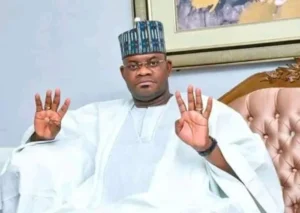
By David Akinmola
Chairman of the Presidential Committee on Fiscal Policy and Tax Reforms, Taiwo Oyedele, has defended the recently introduced changes to Nigeria’s Capital Gains Tax (CGT) regime, describing the reforms as investor-friendly and essential for building a fairer, more transparent fiscal system.
Speaking during a policy engagement session in Abuja on Friday, Oyedele said that contrary to fears that the reforms could discourage investment, over 90 per cent of investors and market participants have expressed support for the new framework, noting that the measures were designed to enhance compliance and stimulate capital market growth.
He explained that the capital gains tax reforms—part of the broader fiscal modernization agenda of the current administration—aim to close loopholes, simplify tax administration, and ensure equitable contributions from individuals and corporations benefiting from asset appreciation.
“The intention is not to overtax or stifle investment, but to make the system fair and transparent,” Oyedele said. “Our feedback shows that most investors actually welcome the clarity and predictability the reforms bring. Over 90 per cent of those we have engaged with believe the measures will improve the investment climate in the medium to long term.”
The reforms, introduced under the Fiscal Policy and Tax Reform Initiative, seek to harmonise tax rules across asset classes and digital platforms, reduce double taxation risks, and ensure that Nigeria’s tax system aligns with international best practices.
Oyedele clarified that the government’s approach is guided by evidence-based analysis and extensive stakeholder consultation, assuring the public that the committee is focused on simplifying compliance rather than introducing new burdens.
“We are working to make it easier for businesses and individuals to understand and comply with tax obligations,” he added. “Our goal is a system that rewards productivity, encourages investment, and ensures everyone contributes their fair share.”
He also addressed concerns from capital market operators and tech investors who feared that taxing capital gains could deter portfolio flows or discourage innovation. Oyedele said that such fears are unfounded, noting that Nigeria’s tax rates remain among the lowest in emerging markets, and exemptions for small investors and startups have been maintained.
“We have deliberately structured the reforms to protect small and medium enterprises, startups, and long-term investors,” he said. “For example, gains below certain thresholds are exempt, and reinvested proceeds in productive ventures attract favourable treatment.”
According to him, the reform also seeks to reduce Nigeria’s heavy reliance on oil revenues by diversifying government income sources through fair, sustainable, and efficient taxation.
Industry stakeholders have largely backed the new framework. The President of the Chartered Institute of Taxation of Nigeria (CITN), Samuel Agbeluyi, described the capital gains tax reforms as a “step in the right direction,” adding that a well-structured tax regime encourages investor confidence.
“What investors want is predictability and fairness, not arbitrary changes,” Agbeluyi said. “If the CGT framework is transparent and efficiently administered, it will improve Nigeria’s fiscal credibility and attract more sustainable investment flows.”
Similarly, Chief Executive Officer of the Nigerian Exchange Group (NGX), Temi Popoola, lauded the government’s engagement with market participants prior to implementation, saying that the dialogue-driven process has helped to align policy intent with market realities.
However, some analysts have cautioned that consistent enforcement and administrative efficiency will determine the success of the reforms.
They urged the government to strengthen data systems and minimize bureaucracy in tax collection to avoid compliance fatigue.
Economic experts say that the fiscal reform agenda, which includes the overhaul of Nigeria’s multiple tax system and the creation of a unified tax code, could significantly improve public revenue, reduce leakages, and enhance fiscal stability if well implemented.
Oyedele reaffirmed the committee’s commitment to fairness, saying the reforms were not about increasing taxes but about “making the system work better for everyone.”
“We are determined to build a modern, efficient, and trusted tax system—one that supports growth, encourages investment, and delivers shared prosperity,” he said.
He also hinted that the next phase of the reform process would focus on implementation consistency, digital monitoring tools, and capacity building for tax administrators, ensuring that the gains of the reform are sustained over the long term.
The capital gains tax review marks one of several fiscal policy interventions undertaken by the Oyedele-led committee as part of efforts to reposition Nigeria’s tax structure, improve compliance rates, and align with the government’s economic recovery and fiscal sustainability goals.








